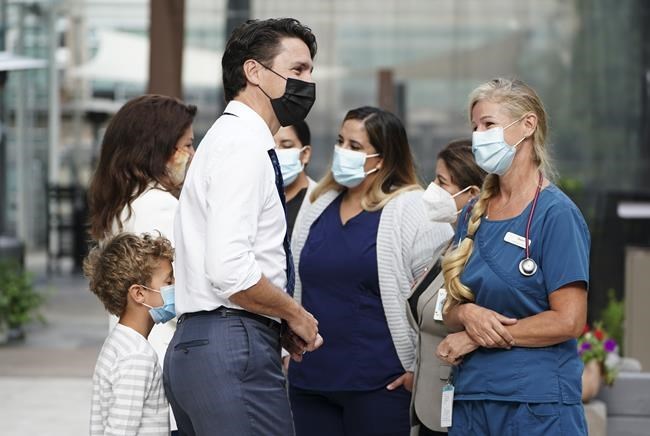OTTAWA — Canada's premiers are demanding a meeting with the newly re-elected prime minister to ask for more money — no strings attached — to pump into their health-care systems.
The provincial and territorial leaders held a teleconference Thursday to discuss what they need from the federal government and agreed health care is their top priority.
The premiers have asked Prime Minister Justin Trudeau to hold a first ministers’ meeting before the next speech from the throne, where they plan to demand an increase in long-term, unconditional health funding.
Speaking at an afternoon news conference, B.C. Premier John Horgan said he and his counterparts spoke about tactics to push Trudeau to provide them more funding, something the prime minister has repeatedly put off.
Horgan said the prime minister promised a meeting about health-care funding prior to the election, and now that the election was over, premiers wanted the sit-down to happen.
He added that even some premiers who are new to their jobs maintain the resolve of their predecessors to pry more money out of the federal government.
“We need long-term sustainable, predictable funding, not for ourselves as governments, but for the people that we represent. Health care is fundamental to who we are as a society,” said Horgan, who chairs the Council of the Federation.
“Publicly funded health care has been the difference between us and our southern neighbours, and we need a federal government that is fully engaged and that's a unanimous position across the country.”
This year's federal budget, released in April, forecast $43.1 billion in health-care transfers to provinces, a drop from the $45.9 billion last fiscal year after extra cash flowed to bolster systems besieged by COVID-19 cases.
The premiers have asked the federal government to immediately grow its share of health-care costs from 22 to 35 per cent — an increase of about $28 billion more this year.
They're also asking for minimum funding increases of five per cent annually, arguing the current plan of three per cent jumps in spending means transfers don't keep pace with yearly cost increases.
Horgan called the gap in health-care funding an "urgent, pressing need," and that he's already shared the concerns with the leaders of the Conservatives and NDP on Thursday.
Trudeau said in August he would not discuss permanent changes to federal health care transfers until the pandemic has passed.
As part of his re-election campaign he promised billions in health-care spending, but his promises come with conditions including the hiring of new nurses and doctors and improvements to virtual care.
He pledged $6 billion to clear surgery backlogs and health care wait-lists and another $3.2 billion to support primary care.
The Liberals also pitched a new health transfer specifically aimed at mental health, with $4.5 billion over five years to start.
Several premiers balked at the idea of meeting new federal conditions arguing that as health care is provincial jurisdiction, they are best suited to direct funds where they are needed.
This report by The Canadian Press was first published Sept. 23, 2021.
— With files from Jordan Press in Ottawa
Laura Osman, The Canadian Press




